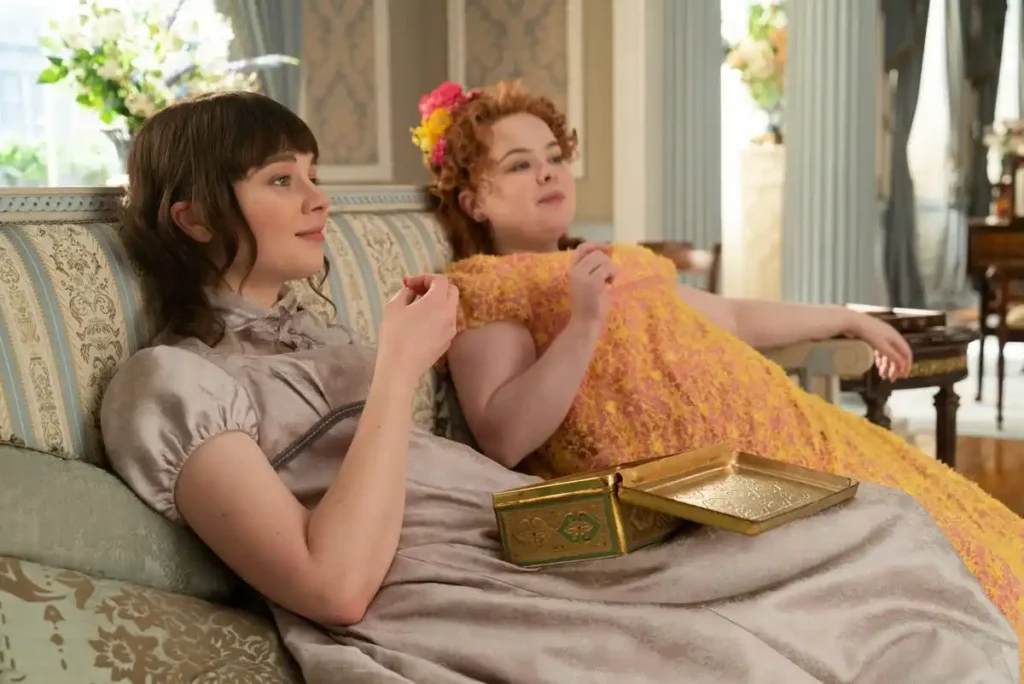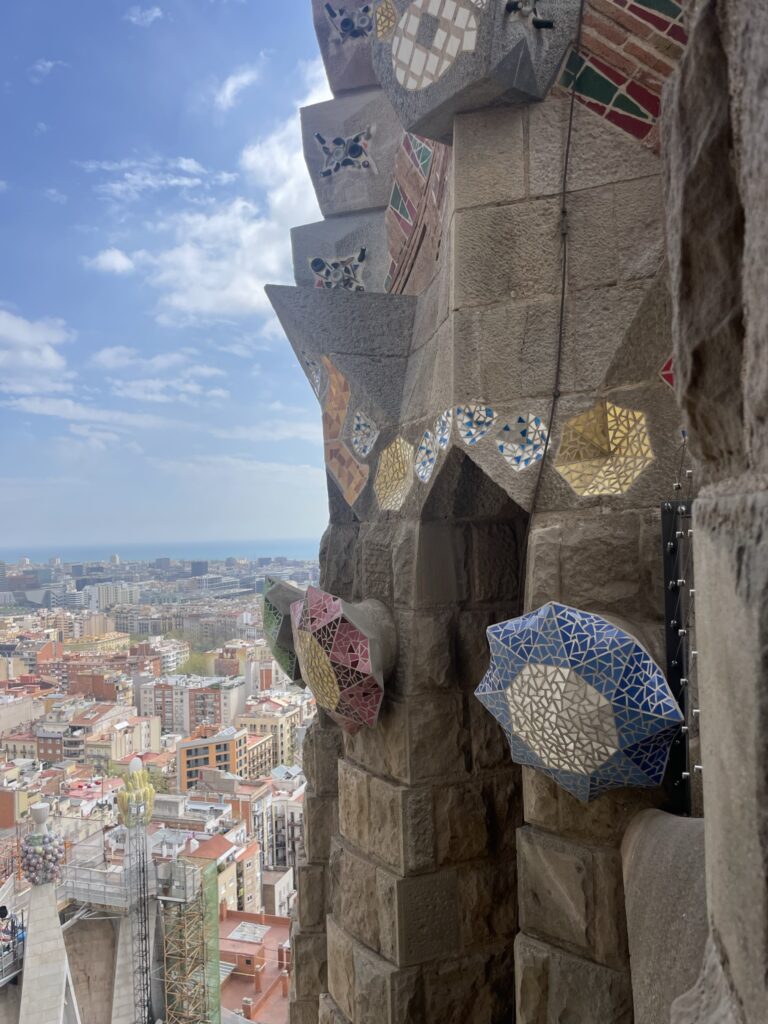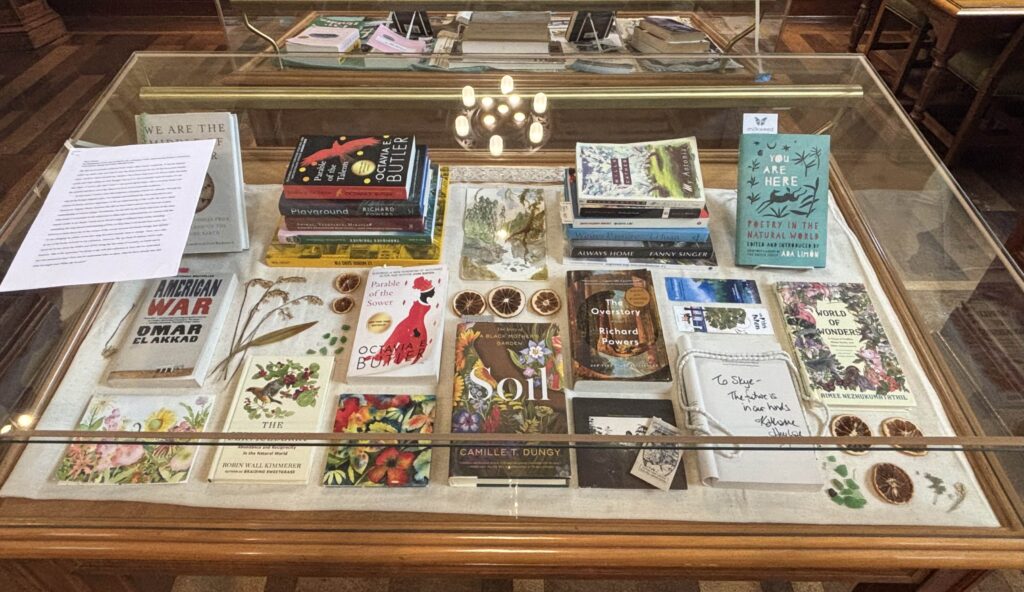Lauren Marler ’24
Staff Writer
Editor’s note: includes spoilers for season 2 of Bridgerton
The much-awaited second season of Bridgerton came out on Netflix on March 25. Though cliché and far from historically accurate, Bridgerton is a binge-worthy TV show where one can be whisked away into a social scene filled with beautiful dresses and balls.
The setting is a Regency-era world, in which finding a suitable husband and avoiding becoming the subject of Lady Whistledown’s drama columns are of the utmost importance. For me, season two of Bridgerton has proved to be an adequate escape from my midterms.
While the first season focused on the passionate romance between the Duke and Daphne, Bridgerton’s second season highlights the Bridgertons’ relationship with the Sharma family. Viscount Anthony Bridgerton is looking to find his viscountess, and the Sharmas have come from India in search of a husband for the family’s youngest daughter, Edwina.
This season was filled with drama over forbidden love and advantageous marriages. Though I’m not particularly well-versed in marital obligation, an aspect that I found particularly interesting and reminiscent of my own life was the friendship between Eloise Bridgerton and Penelope Featherington.
The loyalty between Eloise and Penelope stands out in a show which does not highlight many female friendships that are not familial. They rely on each other as confidants amidst a society that pressures them to find suitable matches over all else.
Eloise and Penelope are likely drawn to each other because they’re both outsiders. Eloise is disconnected from her family and society as she is critical of the traditional role of women. Penelope doesn’t align with the politics of her mother and sisters, and thus rebels against her family with her sensibility and keen observations.
Like many young friendships, Eloise and Penelope’s bond becomes strained as they grow up, and in their case, come “out” into society. For example, at the end of season one, the audience learns that Penelope is Lady Whistledown; she kept this secret from Eloise, who was desperate to know the columnist’s identity. By the end of season two, Eloise feels betrayed when she realizes that Penelope is Lady Whistledown and that such a big secret has been kept from her. The pain intensifies as Eloise reflects on the fact that Penelope, as Lady Whisteldown, wrote columns that hurt Eloise and those she cares about.
Since Eloise and Penelope are seemingly such good friends, why does Penelope not tell Eloise of her gossip column? Perhaps Penelope thinks that telling even one person would risk the confidentiality of her identity. Or, Penelope may enjoy having her own secret identity, separate from Eloise.
Part of Penelope’s desire for separation from Eloise may be motivated by Eloise’s big personality; her interests and thoughts often overshadow Penelope’s. The gossip column is something that solely belongs to Penelope, and her columns have a significant influence on what society thinks of a given person or event. Conceivably, this power and independence offer Penelope respite from her position in society as somewhat of a wallflower.
Besides the Lady Whistledown issue, the girls have kept other secrets from each other which come to a boiling point at the end of the season. Eloise has her own engagements which she has kept separate from Penelope. In the search for Lady Whistledown, Eloise happens upon a boy named Theo, who works at a print shop.
Unlike most, Theo matches Eloise’s wit. He shares his radical political ideas, and she becomes enraptured with both the ideas and Theo himself. Eloise does not share much of this aspect of her life with Penelope. Though she does mention it excitedly once, there are instances where she goes to meet with Theo and hides it from Penelope. This may be an effort to avoid Penelope’s judgment and disapproval, or Eloise might enjoy having a secret.
These instances show the girls’ dependence on one another starting to dissolve, as they venture into new experiences without each other, whether it be with a boy or a gossip column. As they explore their identities outside of their friendship, their relationship becomes burdened with secrets, becoming much more complex than a childhood bond. Though much of Bridgerton is frivolous and cliché, Eloise and Penelope’s friendship felt touchingly reminiscent of real life, and the poignancy of growing apart from a childhood best friend.
Image Source: Den of Geek





